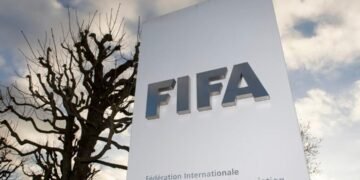The recent release of the 2024 Unified Tertiary Matriculation Examination (UTME) results by the Joint Admissions and Matriculation Board (JAMB) paints a harrowing picture. With a staggering 77% of candidates scoring below 200, it’s imperative to question why this decline has occurred and what underlying factors may be contributing to it.
First, the chronic underinvestment in education by the Federal Government has created a domino effect of challenges within our education system. Insufficient budget allocations have led to a dire lack of resources in schools, ranging from outdated textbooks to dilapidated infrastructure. The meager salaries paid to teachers continue to look helpless in the face of the gigantic and unbearable cost of living. Moreover, the scarcity of funds has forced schools to resort to hiring underqualified educators who may lack the necessary expertise to effectively impart knowledge to students. This vicious cycle of neglect perpetuates a substandard learning environment where students are deprived of the tools and guidance needed to excel academically. As a result, it comes as no surprise that the quality of education suffers, with the just released JAMB examination results serving as a stark indicator of the systemic issues that plague our education sector.
Furthermore, the pervasive influence of social media cannot be overlooked. The allure of social media, with its endless scroll of entertainment and instant gratification, poses a significant challenge to academic engagement and concentration. Today’s students, often referred to as the “TikTok generation,” are inundated with distractions that compete for their attention. As they succumb to the addictive pull of likes, shares, and viral trends, their academic performance suffer.
Compounding these challenges is the concerning trend of private universities lobbying for lower cutoff marks for admission, with some advocating for a cutoff as low as 160. This trend threatens to further dilute academic standards and undermine the integrity of higher education.
In light of these developments, one cannot help but wonder: what does the future hold for the younger generation? If we continue down this path of declining educational standards and compromised integrity, we risk depriving our youth of the quality education they deserve. This not only hampers their individual prospects but also jeopardizes the future competitiveness and development of our nation.
Addressing these issues requires a multifaceted approach. Firstly, there must be a concerted effort to increase budgetary allocations to the education sector, ensuring adequate resources and proper remuneration for teachers. Additionally, promoting digital literacy and responsible social media usage among students can help mitigate distractions and foster a more conducive learning environment.
As the Board prepares to set the minimum benchmark for admissions to universities, it’s crucial that policymakers and stakeholders alike prioritize addressing these underlying issues. Only through concerted efforts to enhance the quality of education and support student academic achievement can we reverse the alarming trend of declining examination results and ensure a brighter future for the next generation.









































